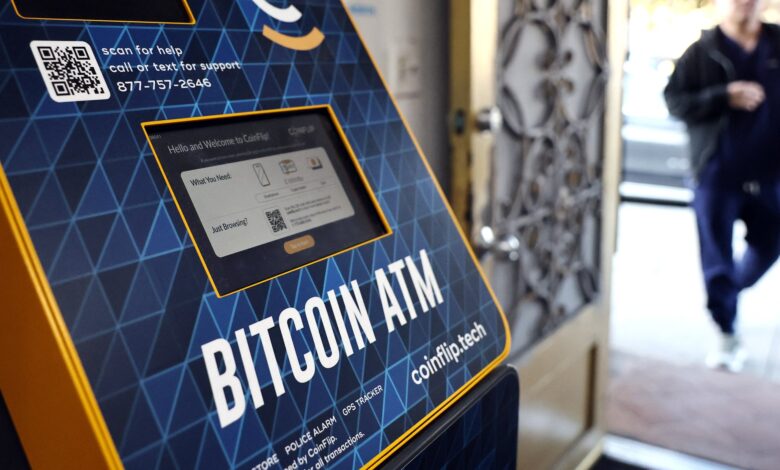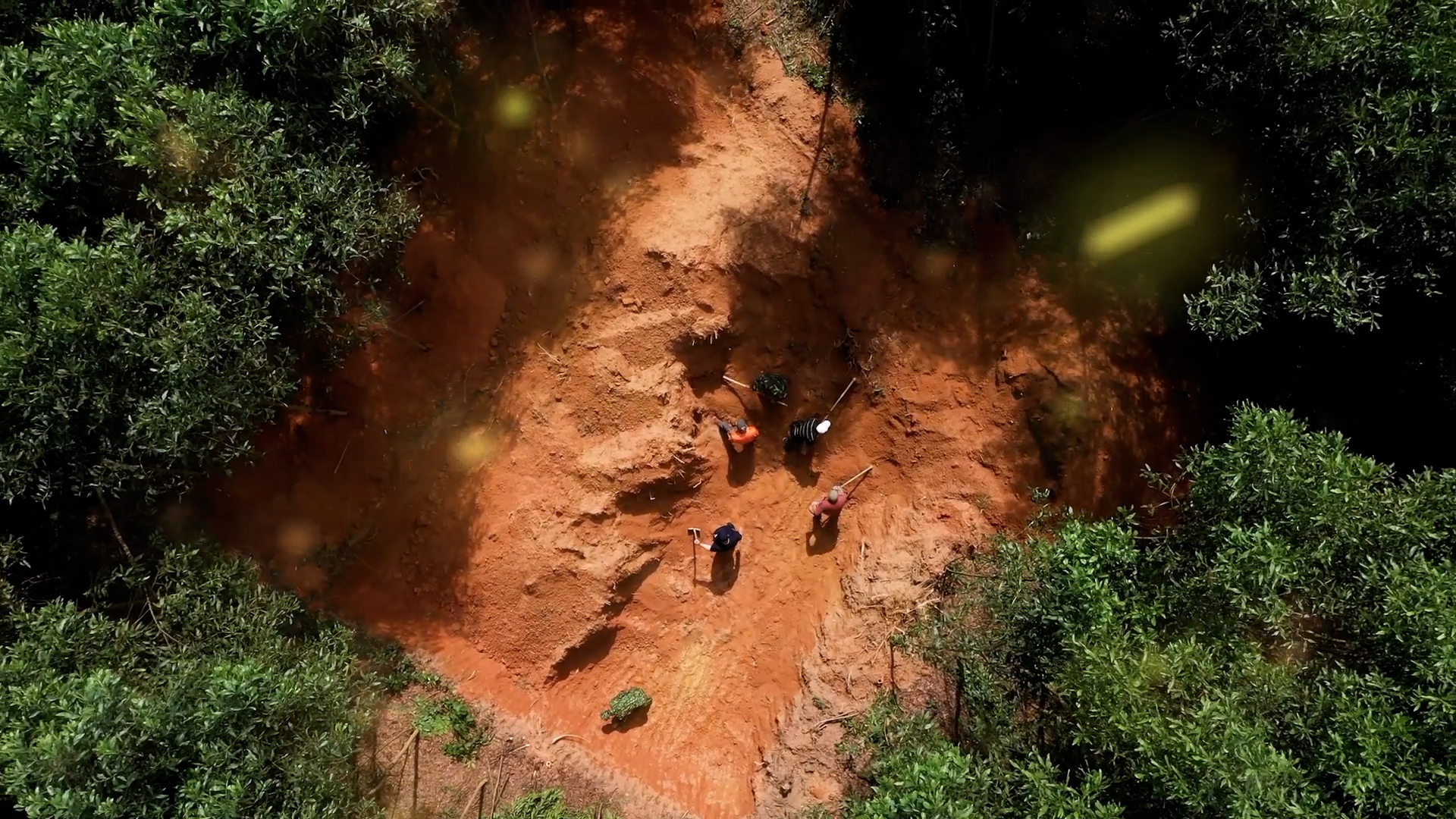Governments and banks once mocked Bitcoin. Now they want in on it | Crypto

Bitcoin has proven to be one of the best performing assets in recent history.
The value of the cryptocurrency has increased about 1,000-fold over the past decade, far outpacing US stocks and real estate.
Buoyed by US President-elect Donald Trump’s pro-crypto stance, Bitcoin’s record high reached a new high of $107,000 on Monday after the Republican confirmed his intention to create a strategic reserve for Bitcoin.
Bitcoin, the first decentralized digital currency, was invented by the pseudonymous Satoshi Nakamoto in the wake of the 2007-2008 global financial crisis.
Nakamoto introduced the blockchain system – a digital ledger that stores transactions in a network of computers – to enable anyone to conduct financial transactions without the involvement of banks, financial companies, or governments.
After being widely derided as a speculative asset with no intrinsic value, Bitcoin is being taken increasingly seriously by governments, financial institutions and investors alike.
Bitcoin has gone from being a niche asset favored by political dissidents and criminals carrying out illicit transactions “to something that central banks have to keep in mind and take into account,” said Boaz Sobrado, a London-based fintech analyst.
“The IMF has set very strict policy guidelines to combat cryptocurrencies when negotiating with countries that may need its special help. It has gone from being an academic question to a practical, real question and central banks are taking it seriously now,” Sobrado told Al Jazeera. .

In January, the US Securities and Exchange Commission (SEC) approved Bitcoin ETFs (exchange-traded funds), allowing investors to gain exposure to the asset on an exchange for the first time.
In a report issued in October, the US Treasury referred to Bitcoin as “digital gold,” citing its use as a store of value.
A number of countries have made big bets on the cryptocurrency.
El Salvador has amassed bitcoin reserves worth about $600 million, and is one of a few countries, along with the Central African Republic, that accepts the asset as legal tender.
Other countries, including the United States and the United Kingdom, have gained significant bitcoin holdings by seizing assets involved in criminal activity.
The United States has confiscated at least 215,000 bitcoins, worth roughly $21 billion at current prices, since 2020, according to an analysis by cryptocurrency firm 21.co.
With Trump’s return to the White House, Bitcoin supporters hope that cryptocurrencies will gain unprecedented legitimacy after years of government-led crackdowns on the sector.
Despite calling Bitcoin a “scam,” Trump has emerged as the world’s strongest defender of the asset.

After pledging to make the United States the “crypto capital of the planet,” he tapped several prominent crypto enthusiasts to join his next administration, including former PayPal COO David Sachs as crypto czar and Paul Atkins as chairman of the Securities and Exchange Commission.
Trump’s pro-crypto stance has found allies in the US Congress, such as Senator Cynthia Lummis, a Republican from Wyoming, who earlier this year introduced the Bitcoin Act of 2024, which would include bitcoin among reserve assets such as gold and oil for a long period. -Store of value term.
Under Loomis’ plans, the government would buy roughly 200,000 bitcoins each year for five years, then hold the assets for 20 years as a hedge against inflation.
“If we do that with five percent of the total bitcoin that will ever exist — which is about a million bitcoins — we can cut our debt in half within 20 years,” Loomis said in a television interview with Fox Business.
On Wall Street, sarcasm and cynicism have also given way to more positive assessments.
BlackRock CEO Larry Fink, who once described Bitcoin as “an indicator of money laundering,” said in January that the commodity was “no different than what gold has been for thousands of years” and “an asset class that protects you.”
“Resistance currency”
The main feature of Bitcoin that makes it revolutionary is that it separates money from the state, according to Max Keyser, a senior Bitcoin advisor to El Salvador’s President Nayib Bukele.
“This is the first time in history that this has ever happened – the money is there and it has no central authority controlling it. This is what makes it so unique and powerful,” Keizer told Al Jazeera.
“There is now a growing feeling that the 21st century will be the century of Bitcoin.”
Keizer saw Bitcoin’s potential early and advised people to buy it when it was worth just $1 in 2011. That year, he and his wife, TV presenter Stacey Herbert, called Bitcoin the “resistance currency” and predicted it would surpass $100,000.
One reason bitcoin has gained strength in value is the poor performance of economies like Argentina, where inflation rose last year by more than 200%, according to Gerald Cilenti, founder and director of the New York-based Trends Research Institute.
“People were seeing the value of their currencies going down… and people were saying: ‘I’m losing all my money, what am I going to do?’” They couldn’t buy gold, so they started buying everything they could with cryptocurrencies like bitcoin, Cilenti told Al Jazeera. That kept her strong.”
Since Trump’s election, the price of Bitcoin has risen more than 50 percent, and with the emergence of a pro-cryptocurrency administration, Cilenti expects an even greater rise.
“[The value] It could pass through the ceiling, but we don’t see it [Bitcoin] “It’s going to go down a lot,” he said.
Cryptocurrency proponents argue that Bitcoin’s winning feature is that its global supply reaches 21 million.
Unlike central banks that can print money indefinitely, the supply of Bitcoin remains constant regardless of demand, which has helped boost its value against the dollar.
Futurist and technology investor Armando Pantoja believes the value of Bitcoin will rise “forever,” likening purchasing the asset to buying real estate in Manhattan.
“Bitcoin has value not because of the currency, but because of the technology that governs it, blockchain technology,” Pantoja told Al Jazeera.
“In the Bitcoin blockchain, there is a certain supply of Bitcoin that goes out every 10 minutes, and every four years they halve it. As time goes by, less and less Bitcoin is created.
“Once it reaches its maximum, no more can be created… That’s why it will continue to rise. Every four years when they cut the supply, it has to respond positively. It has to keep rising to meet the demand.”

Keizer expects Bitcoin to reach $1 million in value in the coming years, with a market value at least equal to gold’s $20 trillion market value.
“This would be a $1ma coin. I think that would be a conservative estimate of the price over the next three to four years.”
However, Bitcoin’s astonishing rise has not convinced everyone.
Despite its recent rise, the commodity remains extremely volatile.
After reaching $107,000 at the beginning of the week, the asset had fallen below $97,000 by Friday.
Many financial analysts continue to view Bitcoin as a bubble that has little to support its dizzying rise.
“The more resources Americans misallocate to companies tied to bitcoin and cryptocurrencies, the fewer resources there will be to devote to making the things we actually need,” Peter Schiff, chief economist at Euro Pacific Capital, said in an X post last month. .
The end result will be a larger trade deficit, a weaker dollar, higher inflation, and a lower standard of living.”
Although Trump’s positive stance on Bitcoin has excited crypto enthusiasts, some pro-crypto governments have curbed their support for the sector.
El Salvador announced this week that it will privatize or close its cryptocurrency wallet Chivo as part of the terms of a $1.4 billion loan deal with the International Monetary Fund (IMF).
Bukele’s government also agreed to make acceptance of Bitcoin by businesses voluntary, among steps to allay International Monetary Fund concerns about risks related to Bitcoin.
Central bank digital currencies
Some cryptocurrency proponents see governments and central banks playing a leading role in the global march toward digital money by developing their own currencies.
The United States, for example, could create its own digital currency as a way to pay off its federal debt, said Cilenti of the Trends Research Institute.
“There is no way the United States can pay off its $36 trillion in government debt. They may come up with a new cryptocurrency as part of CBDCs (central bank digital currency),” Cilenti said.
“We are seeing more and more central banks talking about CBDCs, and it is definitely going in that direction,” Cilenti added.
“They’ll use this as an excuse to come up with a coin because they can’t pay off the debt they have now. They’ll say, ‘This.’ [digital currency] It is worth much more than the dollar, yuan and euro, and they use that to pay off their debts.
Some observers have warned that the introduction of central bank digital currencies would open a Pandora’s box of problems related to government control and monitoring of people’s money.
Trump’s pick for Commerce Secretary is Howard Lutnick, the CEO of Cantor Fitzgerald, which manages the stock of US Treasuries that back Tether, the largest stablecoin by market capitalization.
Stablecoins are cryptocurrencies that are tied to a commodity or traditional currency to maintain a stable price. It has reached record sizes of over $200 billion in total market cap.
There could be an opportunity for Tether to become the US’s de facto digital currency, and for smaller economies such as the United Arab Emirates, Hong Kong, Singapore and Switzerland to issue their own central bank digital currencies, Sobrado said.
“The pro-crypto voices and the voices critical of the Fed have never been louder in the White House,” Sobrado said.
Cilenti said he has no doubt that the future of money is digital.
“There is no doubt at all,” he stressed.
https://www.aljazeera.com/wp-content/uploads/2024/12/AFP__20241210__2189107140__v1__HighRes__BitcoinPricesSkyrocketSincePresidentialElect-1734191338.jpg?resize=1920%2C1440
2024-12-21 12:05:00





